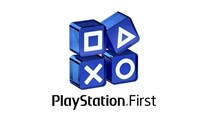Why study Computer Game Applications Development at Abertay?
Develop games and interactive experiences at the widely recognised top International Games School (Princeton Review 2025). Find your niche on this world-leading Computer Game Applications Development degree.
Using the latest technology and tools, you’ll cover game development topics such as gameplay mechanics, AI for games and audio programming. You’ll also learn general games programming in custom frameworks and industry-standard game engines such as Unreal Engine 5.
You'll develop games at every stage of the course, including larger projects in multidisciplinary teams. Facilities include the PS5 lab, Virtual Production studios and an XR lab, and we are Scotland's first Adobe Creative Campus.
This games-orientated programming course is directly relevant to the sector, evolving as fast as the industry does. Plus, there’s internship and mentoring opportunities with local and global games companies.
Gain all the skills you need to pursue a career in the games industry
Widely recognised as THE place in Europe to study games, you’ll develop skills in:
Industry mentoring and internships
You’ll get the chance to apply for internships or work placements, and receive mentorship from industry professionals as part of your project work. Plus, you'll collaborate with students from other games courses. All of which is as close as it gets to working in the business while you study. Find out more.
You’ll graduate with all the confidence and skills you need for an exciting career in the multi-billion-pound creative industries, including games and software development.
This course is top in Scotland for Teaching Satisfaction (National Student Survey 2023). It also ranked in the UK top 5 for Course Satisfaction (Computer Science and Information Systems) in the 2023 Guardian University Guide.
‘A degree from Abertay has been a hallmark of excellence since the institution became the first to pioneer games degrees in the 1990s.’ Dr Richard Wilson OBE, CEO of TIGA
Did you know...? Abertay is the top International School for video games design (Princeton Review 2025).



























